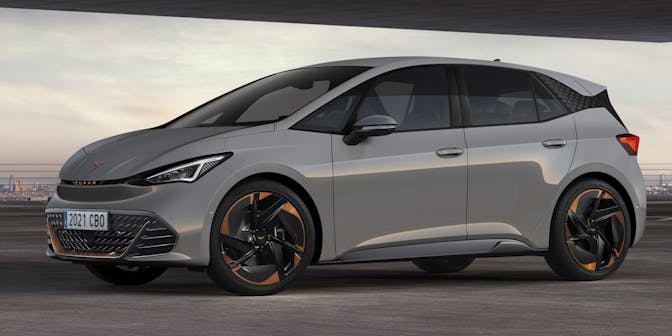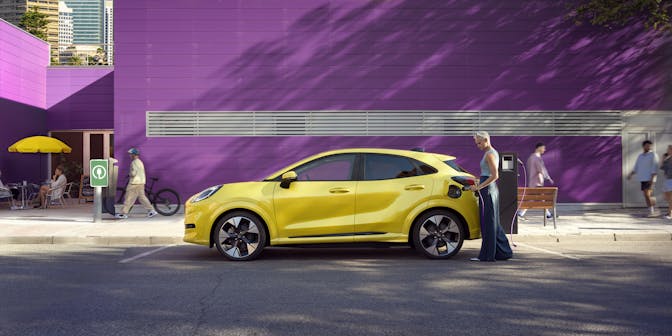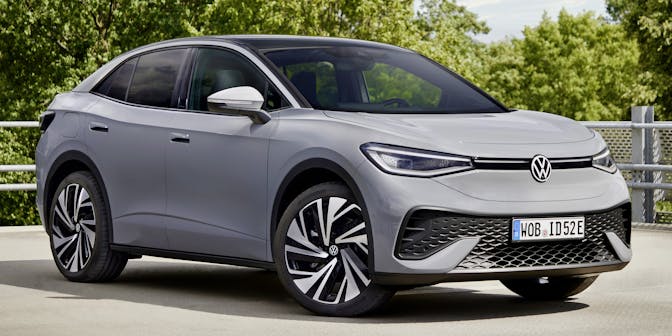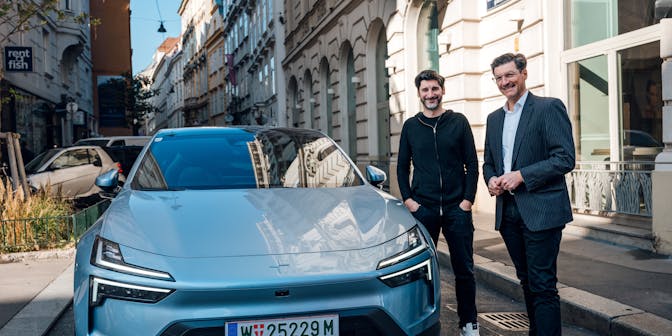10 actions to convert fleets to EVs
Green number plates are set to be rolled out from autumn to help encourage drivers to make the switch to electric vehicles (EVs)*, but how easy is it for businesses to adopt EVs? DriveElectric, one of the UK’s leading electric vehicle leasing companies, shares ten actions that companies can take to convert their fleets to electric.
Ten actions that businesses can take to convert their fleets to electric
1) Look at whole life costs
Electric vehicles can be more expensive to buy than petrol or diesel equivalents, but whole life costs of EVs are typically cheaper.
- Employees switching to electric company cars are substantially better off, since April 2022 the Benefit in Kind (BIK) company car tax for EVs is just 2%.
- EVs are also typically 30% cheaper to maintain than their internal combustion engine alternatives because they have fewer moving parts.
- There’s no road tax to pay on EVs.
- The benefits get even better if you live in or travel into London. Fully electric vehicles are exempt from the capital’s Congestion and Ultra Low Emission Zone charges. This saves more than £5,000, compared to a Euro 5 diesel entering Central London daily over 45 weeks. Just remember that you need to register your EV with TfL and pay an annual fee of £10.
2. Carry out a fleet review
Understanding the needs of a business is essential before recommending where electric cars or vans can work best. A review of an organisation’s current fleet can be done in a practical way that doesn’t have to be over-engineered.
3. How are vehicles used?
What are the vehicles used for, what distances do they cover, what routes are they driven on? Electric vehicles typically now offer driving ranges of around 150-350 miles, meaning that whether a fleet’s cars travel less than 100 miles per week or a few hundred miles every day, there’s something to suit all needs.
4. Review the latest EVs that are available
What electric vehicle options are available? There’s a wide range of EVs on sale now, with lots of new electric cars and vans coming to market during 2020, with options to suit all kinds of needs, tastes and budgets.
5. Ensure replacement vehicles are fit for purpose
Can the proposed replacement vehicles do the job? Whether the requirement is for urban deliveries or long motorway journeys, it’s likely that there will be an EV that’s right for the task.
6. Test drive/trial the EVs
Proposed EVs need to be driven, and ideally a trial of at least a few days should be arranged. DriveElectric also offers the ‘try before you buy’ FlexiHire option for businesses, allowing an electric car or van to be tried out over a period such as three months.
7. Implement charging solutions
EVs don’t need to visit petrol stations, but they do need to be charged. DriveElectric’s experience shows that charging and range are the biggest concerns for fleet managers, but there’s an increasing range of home, workplace and public charging solutions.
- The Workplace Charging Scheme allows a company to claim £350 per charging point installed at a workplace, up to a maximum of 40, which could mean a saving of up to £14,000.
- In terms of public charging, as at 30 June 2020 there were 18,583 EV charge points with 32,247 connectors at 11,599 locations in the UK**. There are now more EV charge points than traditional fuel stations, and many of these are equipped with rapid chargers that can boost an EV’s battery from empty to 80% in just 30 minutes, making long journeys in EVs much easier.
8. Energy – make it renewable
EVs have no tailpipe emissions, meaning there’s no negative impact on local air quality, and they can also be charged using zero CO2 renewable energy. There are energy tariffs for EV drivers which use renewable energy and cost less than 5p per kWh. Multiplying the cost of the energy going into the car by its battery size will give the cost of a full charge, meaning that fully charging a Nissan LEAF could cost as little as 5p x 40kWh = £2, giving a real-world driving range of around 150 miles.
This shows that, along with Benefit in Kind tax, the biggest saving you’re likely to make on an EV compared to a petrol or diesel vehicle is on fuel.
energy cost x battery size = charging cost
9. Tie in with corporate social responsibility
The adoption of EVs should be part of a company’s corporate social responsibility/environmental/sustainability policies, which can also enhance a company’s image.
10. Involve the employees
Employees want to be part of moves to go green – engage with them and harness their enthusiasm. Apart from delivering improved air quality, employees prefer the driving experience of EVs.
More and more businesses want to switch to electric vehicles, but may need help on their journey.
DriveElectric can help organisations with all of the areas above, typically saving money as well as slashing emissions.
Mike Potter, Managing Director of DriveElectric, comments: “More and more businesses want to switch to electric vehicles, but may need help on their journey. That’s where DriveElectric comes in, as we have worked with many organisations to successfully convert their fleets to electric. And this is the year to do it, with zero percent company car Benefit in Kind tax for pure electric vehicles already saving thousands of pounds per year for company car drivers, and now the government is reported to be looking at other measures to encourage a move to EVs as part of a green economic recovery.”
Improvements in air quality during lockdown have been well documented, and EVs will help to maintain lower levels of pollution, rather than shifting the health risk from COVID-19 to increased air pollution from vehicles.
DriveElectric can help your organisations on its journey to net zero
We've proven that sustainability is good for business.
Our electric car lease special offers
Cupra Born 169kW e-Boost V1 59kWh 5dr Auto
- £2,098.85 Initial rental (ex. VAT)
- £2,518.62 Initial rental (inc. VAT)
- 48 Month term
- 5000 Annual mileage
- Subject to status and conditions + arrangement fee

Ford Puma Gen-E 123kW Select 43kWh 5dr Auto
- £2,147.79 Initial rental (ex. VAT)
- £2,577.34 Initial rental (inc. VAT)
- 48 Month term
- 5000 Annual mileage
- Subject to status and conditions + arrangement fee

Volkswagen ID.5 210kW Match Pro 77kWh 5dr Auto
- £2,722.90 Initial rental (ex. VAT)
- £3,267.48 Initial rental (inc. VAT)
- 48 Month term
- 5000 Annual mileage
- Subject to status and conditions + arrangement fee

More EV guides
Understanding Vehicle Excise Duty (VED) or "Road Tax" for EVs

How to save money on a new car with Salary Sacrifice
How is salary sacrifice calculated?

How to charge an electric car in public?
Sources:
*Transport Secretary Grant Shapps has confirmed that green number plates are set to be rolled out from autumn, under plans to drive a green economic recovery: https://www.gov.uk/government/news/green-number-plates-get-the-green-light-for-a-zero-emission-future
**https://www.zap-map.com/statistics/